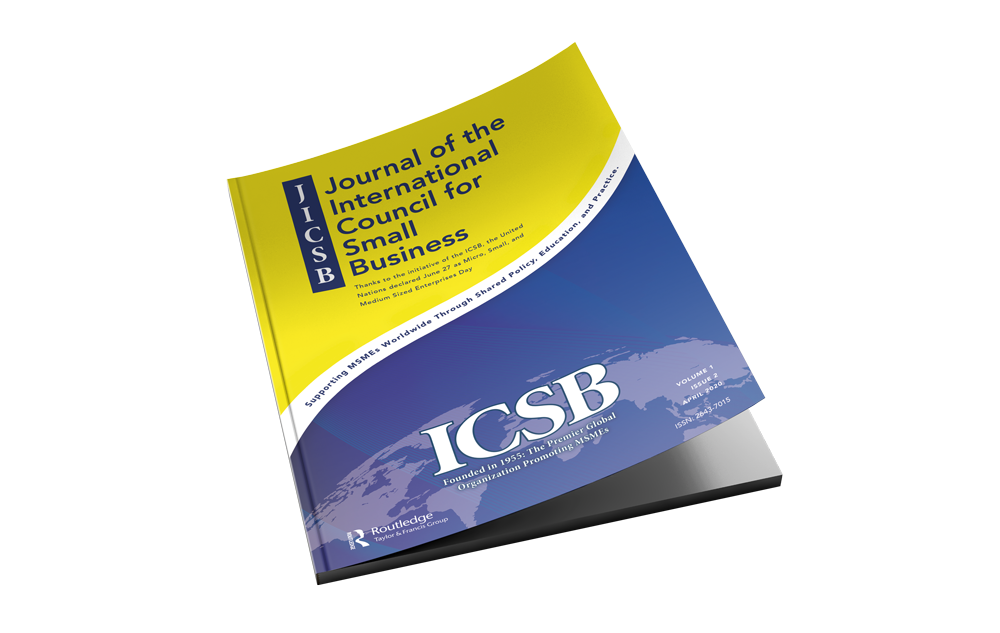We’re excited to bring you a new update on our JICSB journal: Your trusted source for global insights and scholarly research on micro, small, and medium-sized enterprises (MSMEs).
Since its inception, the Journal of the International Council for Small Business (JICSB) has been dedicated to publishing high-quality research that bridges academic rigor and real-world relevance.
For six years, our concise format (10–12 pages) has served us well, helping translate research into clear, actionable insights for entrepreneurs, practitioners, and policymakers.
But as entrepreneurship scholarship continues to grow, so too must the ways we engage with it. Beginning January 1, 2026, JICSB will launch an expanded suite of article types:
🧩 Research Notes – Short, focused contributions connecting theory to practice.
📘 Research Articles – Full-length academic studies advancing entrepreneurial understanding and systems-level impact.
⚡Rapid Communications – Timely, evidence-based insights responding to emerging events and global disruptions.
Type 1: Research Notes are shorter contributions that highlight a specific research subject, methodological insight, or professional practice issue. This format builds on JICSB’s long-standing commitment to publishing concise, applied scholarship that bridges effectively the theory–practice divide. Within this category, JICSB will continue to publish research translations of selected high-impact articles originally published in the Journal of Small Business Management. These translations distill the theoretical and methodological contributions of JSBM studies into practitioner- and policy-relevant insights, extending their reach and real-world impact.
Type 2: Research Articles represent full-length, traditional academic contributions that offer comprehensive theoretical development, rigorous methodological design, and robust empirical analysis. These articles are intended for studies that advance foundational understanding of entrepreneurship and small business phenomena while maintaining clear connections to applied outcomes. Research Articles should not only demonstrate methodological sophistication but also articulate how their findings inform policy, shape practice, or influence systems-level change. Authors are encouraged to position their work within the ongoing scholarly debate.
Type 3: Rapid Communications provides an avenue for the scholarly community to offer expedited responses to unfolding events with significant implications for entrepreneurship and small business. Examples include early insights during the onset of the COVID-19 pandemic, entrepreneurial adaptation following natural disasters (for example, tsunamis and earthquakes), or the immediate business consequences of geopolitical shocks (for example, the full-scale conflict in Ukraine). Beyond crisis response, Rapid Communications may also engage with timely issues emerging in the media or business press. For example, in 2025, scholars could have offered research-backed insights into how venture-backed start-ups can best navigate leadership scandals, or into the advantages and pitfalls of the co–chief executive officer model adopted by firms such as Spotify, Comcast, and Oracle.
All submissions will continue to undergo rigorous double-blind peer review, ensuring quality, integrity, and relevance — while reflecting the diverse voices shaping our field.
JICSB remains proud to stand at the intersection of scholarship, policy, and practice — driving forward ICSB’s mission to make entrepreneurship research more accessible, actionable, and impactful.
Eric Liguori, Antje Fiedler, Ayman El Tarabishy, & Jeffrey Alves
JICSB NEW TYPES:


